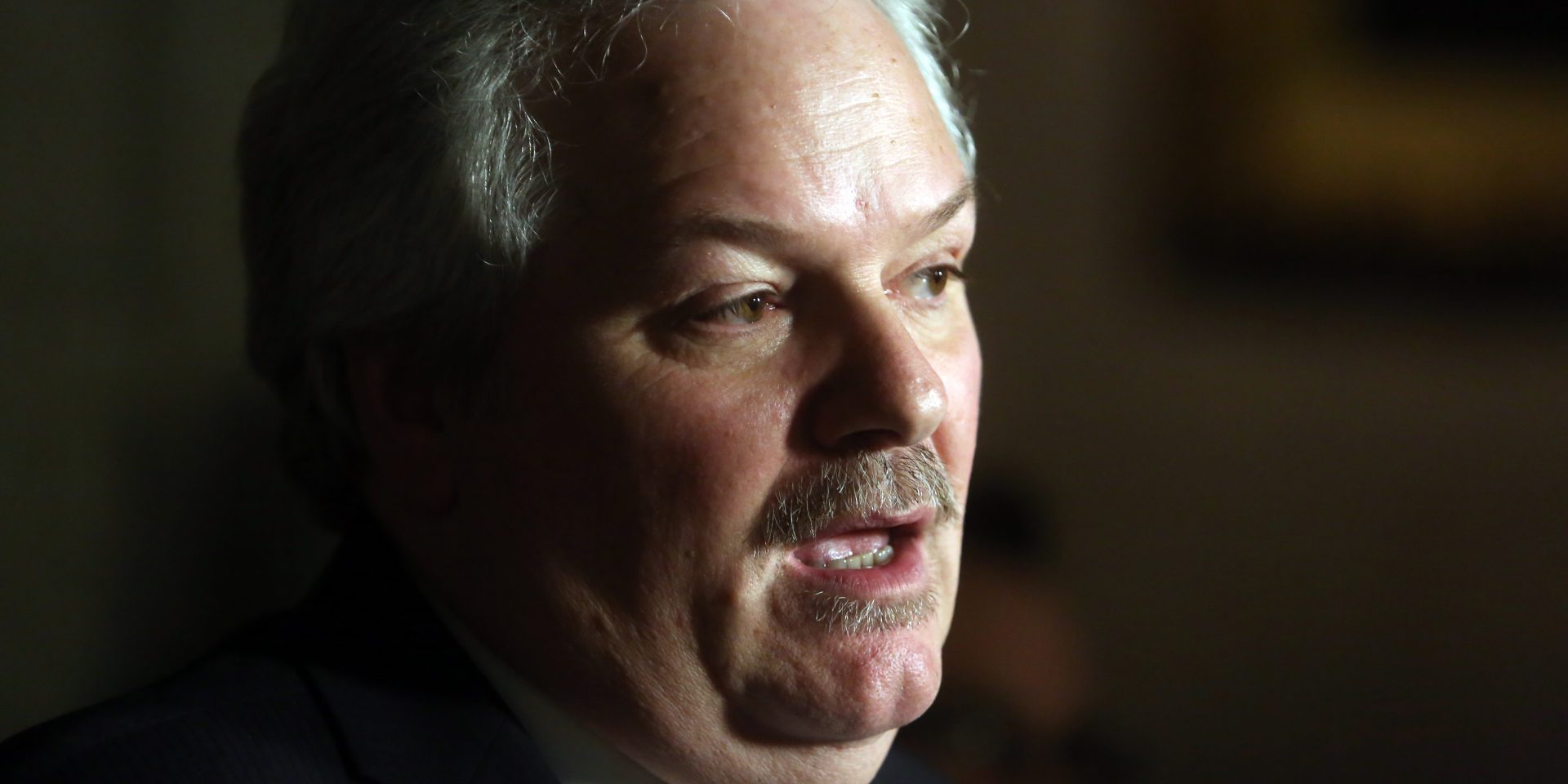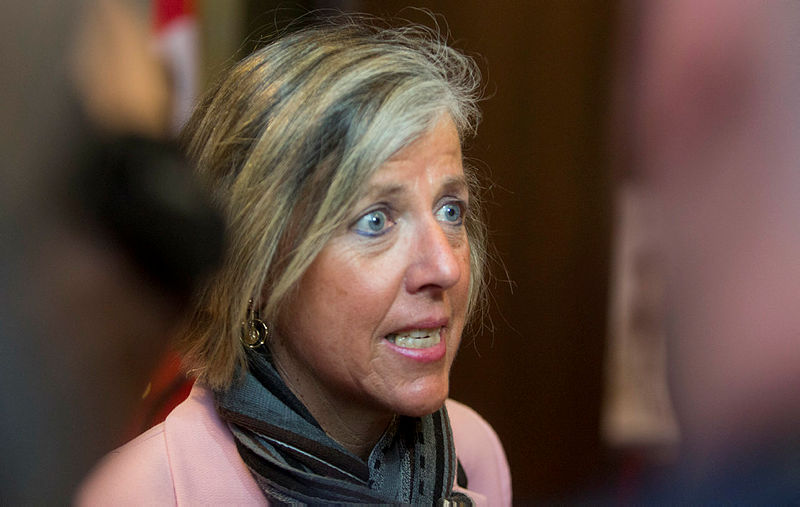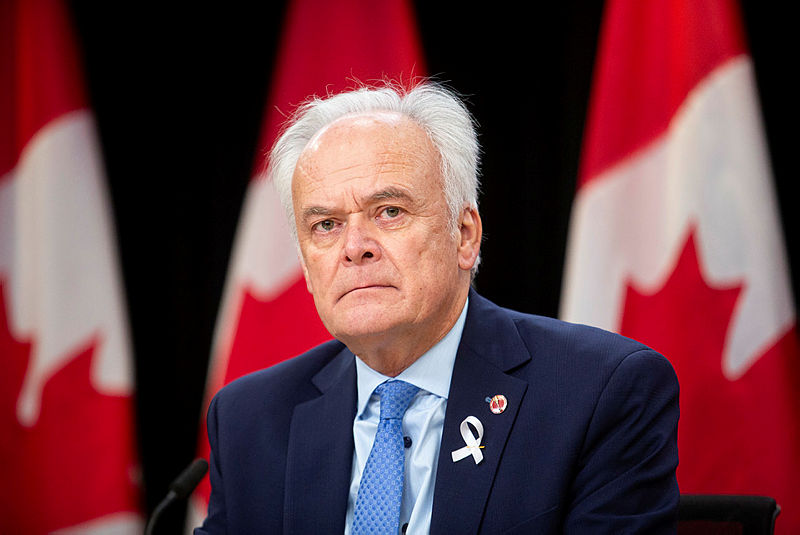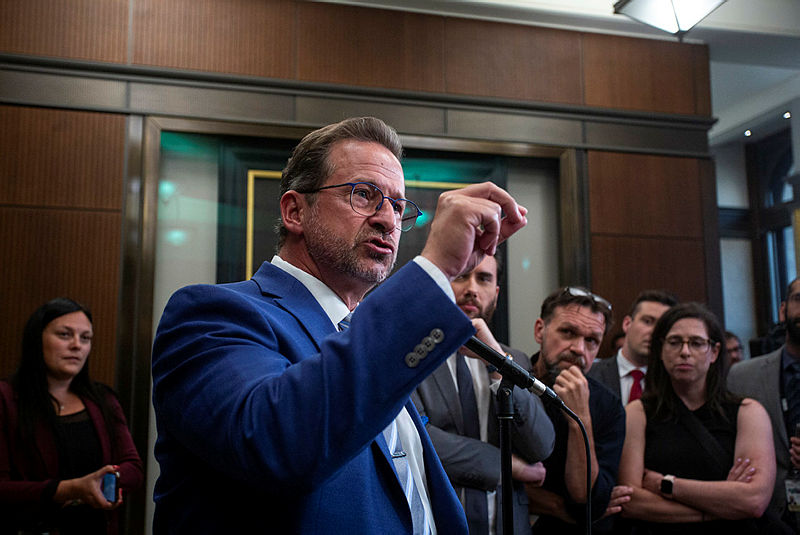Senate study of supply management bill imperils Bloc deadline

Senators tasked with examining a bill to ban supply management concessions in trade talks say they won’t be rushed despite a Bloc Québécois-imposed deadline to pass the bill, or risk a snap election.
Last week, the Senate Foreign Affairs and International Trade Committee held its first two meetings to study Bill C-282, which is sponsored by Bloc MP Luc Thériault (Montcalm, Que.). The bill seeks to amend the Department of Foreign Affairs, Trade, and Development Act to bar negotiators from offering any additional access to Canada’s supply-managed sectors.
As opposition parties jockey for leverage with the minority Liberals following the demise of the government’s supply-and-confidence agreement with the NDP, Bloc Québécois Leader Yves-François Blanchet (Beloeil–Chambly, Que.) set out an Oct. 29 deadline for the passage of Bill C-282, as well as Bill C-319, which would increase benefits for Canadians who are 65 to 74 years old. If the deadline is missed, the Bloc would reconsider its support of the Liberal government in subsequent confidence votes.
Bill C-282 has been on the Senate’s docket for more than a year after it passed the House of Commons with all party support in June 2023—49 Conservative MPs voted against the bill at third reading, as did two Liberal MPs. Despite voting against an identical Bloc bill in the previous Parliament, Conservative Leader Pierre Poilievre (Carleton, Ont.) flipped his vote in support of the current bill.
In the Senate, the bill passed second reading and was referred to committee on April 16. Committee members heard from Bloc MPs, government officials, and agricultural and trade stakeholders during two meetings on Sept. 25 and 26.
Independent Senator Yuen Pau Woo (British Columbia), who sits on the Senate Foreign Affairs Committee, told The Hill Times that the Senate will operate on its own timeline.
“The vast majority of Senators today are independents who don’t sit as members of a partisan caucus, which means they are not subject to the wishes or directives of squabbling parties in the House,” he said.
He said that a bill as important as Bill C-282 needs a “very thorough” study by the Upper Chamber.
“We have so far heard from just a small number of affected parties and experts, so I expect that there will be many more hearings to come,” he said.

The House International Trade Committee held six hearings on the bill over two months.
Independent Senator Marty Deacon (Waterloo Region, Ont.), who is also a member of the Senate committee, echoed Woo’s comments, remarking that the Senate won’t be influenced by any House timelines.
“I don’t believe the brinksmanship in the House will have any effect on the committee’s work outside of some increased media attention. It’s not the first bill I’ve seen that has political ramifications, nor will it be the last,” she said in an email, adding that the committee’s concern is solely with the merits of the bill.
Deacon said Bill C-282 requires “a good deal of study,” noting that if it becomes law, it would “fundamentally change the way present and future trade governments negotiate trade agreements.”
“The committee in the other place held about six meetings on the bill, so I think it’s fair to expect our Senate committee to conduct the same number at least, with maybe one or two more to ensure we haven’t missed any important voices in this discussion,” she said.
Deacon said the committee will conduct its study of Bill C-282 at the same time while simultaneously continuing its look at Canada’s engagement in Africa, and hearing testimony related to a number of intensifying global conflicts.
When the committee reconvenes this week, its attention will return to its study on African engagement, holding hearings on Oct. 2 and 3 on the topic.
The office of Progressive Senator Peter Harder (Ontario), who serves as vice-chair of the Senate committee, said the number of meetings the committee will hold on Bill C-282 is still unclear, but it is expected to be equal to the House committee’s study of six meetings.

Chair and Independent Senator Peter Boehm (Ontario) told committee members on Sept. 25 that the hearings looking into the bill will be “full and complete.”
He offered the explanation after Bloc MPs questioned why it has taken the Senate so long to examine the bill.
Boehm explained that the committee’s time has been focused on studies looking into Canada’s foreign service, as well as the country’s sanctions regime, and engagement with Africa, noting that all Senate groups are represented on the steering committee, which sets out the schedule.
“And, if people haven’t noticed, there are a few wars going on,” he remarked.
Senate Government Representative Marc Gold (Stadacona, Que.) declined to speak to The Hill Times following the Sept. 25 committee meeting, remarking that he had yet to be briefed on the bill, and referring questions to his office.
Asked if the government is putting pressure on the Senate to pass Bill C-282 expeditiously, a spokesperson for Gold referred this newspaper to Boehm and the bill’s Upper Chamber sponsor Progressive Senator Amina Gerba (Rigaud, Que.). Boehm told the committee he was refraining from media interviews as chair of the committee.
Gerba said she wished that the committee’s study of Bill C-282 had started earlier, but noted that its timeline will proceed based on the schedule set out by the steering committee.
“The Senate is a sober second thought Chamber. It must be able to do its job serenely, while humbly acknowledging the democratic vote of the House of Commons,” she said in an email.
After publication, Gold’s office sent an additional comment, calling for the committee to prioritize the study of Bill C-282.
“Bill C-282 has been overwhelmingly supported by MPs of all political parties in the Lower Chamber and we hope the Senate will respect that expression of democratic will,” Gold said in a statement. “As it was adopted by a supermajority of elected MPs more than a year ago, we would hope for the Senate Committee on Foreign Affairs and International Trade to prioritize the study of this bill over other business and return it to the chamber for third reading debate in a timely fashion.”
He added that it isn’t up for debate that Senate committees should prioritize private member bills that are “duly passed” by the House, but noted the Government Representative Office has no more procedural power to shepherd private member’s bills through the Senate than any other individual Senator.
Boehm gave an unorthodox statement prior to Senators questioning Bloc MPs about the bill, during which he voiced his opposition to the bill, but promised to conduct the hearings fairly as the chair.
“For me, it is not about supply management, but rather about curtailing the executive branch of government under the Royal Prerogative to negotiate international trade agreements,” the former senior-level diplomat said. “I therefore think it is not in the national interest—by that I mean Canada—to pass it, as it divides the agricultural community across the country and will have implications for future trade negotiations, particularly in the context of the Canada–United States–Mexico Agreement in 2026.”
The U.S. has raised its concerns over how Canada allocates dairy access to foreign exporters, which was a concession Ottawa granted during the NAFTA renegotiations. The three North American nations will review the trade pact in 2026 to decide if they all want to extend the deal.
Speaking to the committee on Sept. 25, government officials presented the view that passing Bill C-282 wouldn’t change Canadian trade policy. They said that since the conclusion of CUSMA, the government has maintained that it wouldn’t negotiate away any additional supply management concessions.

But Global Affairs Canada trade official Doug Forsyth said the bill could pose a risk in the future.
“As soon as you take things off, if you were to start removing things from the table, starting to narrow the scope of the negotiation, your trading partner does that as well. They may not take areas where they are sensitive off the table knowing they are not going to make a concession there anyway. They may take things off the table that are of interest to you,” he said. “It starts to narrow the scope of the negotiation.”
“Then, would the FTA [free trade agreement] provide positive commercial benefits for Canada across the board? I think the answer is no. This is one of the risks that we face,” he said.
Forsyth said he doesn’t imagine that those south of the border who are tracking the bill’s progress are content.
“All of our trading partners are watching. They are watching what this bill looks like, how it has moved through the House, and now it’s in the Senate. I don’t know how the U.S. will react to it, but I can’t imagine that it would be positive,” he said.
In his opening statement, Forsyth said C-282 could have implications for future trade negotiations.
The Bloc Québécois defended the bill as needed due to carve outs in three major trading deals that gave foreign exporters access to a small percentage of Canada’s dairy market. Dairy farmers and processors received compensation for losing protection of some of the market.

In his questions at the committee, Woo raised the argument that despite access being negotiated away, the Canadian dairy industry is on a stronger economic footing than it was prior to the concessions being given.
Chicken Farmers of Canada chair Tim Klompmaker told the committee on Sept. 26 that Canada’s trade negotiations shouldn’t come at the expense of supply-managed sectors.
“Anyone opposing this bill is willing to accept concessions for supply management in the future,” he said.
nmoss@hilltimes.com
The Hill Times
EDITOR’S NOTE: This article was updated on Oct. 2 at 11:54 a.m. to include an additional comment from Senator Marc Gold.






 LICENSING
LICENSING PODCAST
PODCAST ALERTS
ALERTS













